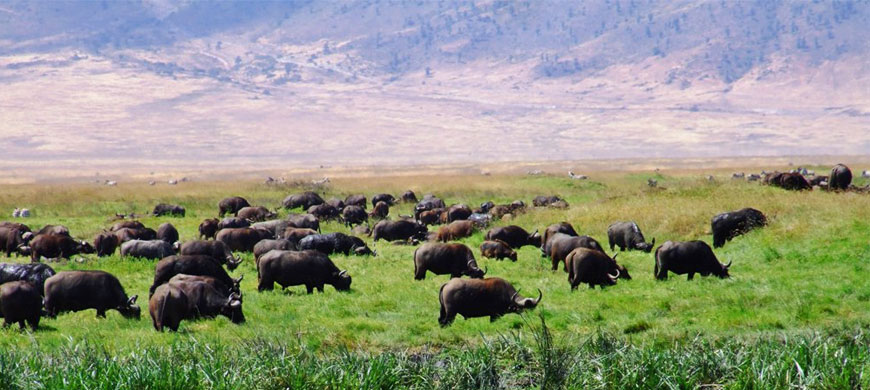Snapshot

Ngorongoro Conservation Area includes its eponymous famous crater, Olduvai Gorge, and huge
expanses of highland plains, scrub bush, and forests that cover approximately 8300 square
kilometres. A protected area, only indigenous tribes such as the Masaai are allowed to live
within its borders.
The Ngorongoro Conservation Area spans vast expanses of highland plains, savanna, savanna woodlands and
forests. Established in 1959 as a multiple land use area, with wildlife coexisting with semi-nomadic
Maasai pastoralists practicing traditional livestock grazing, it includes the spectacular Ngorongoro
Crater, the world’s largest caldera. The property has global importance for biodiversity conservation
due to the presence of globally threatened species, the density of wildlife inhabiting the area, and the
annual migration of wildebeest, zebra, gazelles and other animals into the northern plains. Extensive
archaeological research has also yielded a long sequence of evidence of human evolution and
human-environment dynamics, including early hominid footprints dating back 3.6 million years.
This truly magical place is home to Olduvai Gorge, where the Leakeys discovered the hominoid remains of
a 1.8 million year old skeleton of Australopithecus boisei, one of the distinct links of the human
evolutionary chain. In a small canyon just north of the crater, the Leakeys and their team of
international archaeologists unearthed the ruins of at least three distinct hominoid species, and also
came upon a complete series of hominoid footprints estimated to be over 3.7 million years old. Evacuated
fossils show that the area is one of the oldest sites of hominoid habitation in the world.
The Ngorongoro Crater and the Ngorongoro Conservation Area are without a doubt some of the most
beautiful parts of Tanzania, steeped in history and teeming with wildlife. Besides vehicle safaris to
Ngorongoro Crater, Olduvai Gorge, and surrounding attractions, hiking treks through the Ngorongoro
Conservation Area are becoming increasingly popular options. Either way you choose to visit, the Crater
Highlands are an unforgettable part of the Tanzanian experience.









